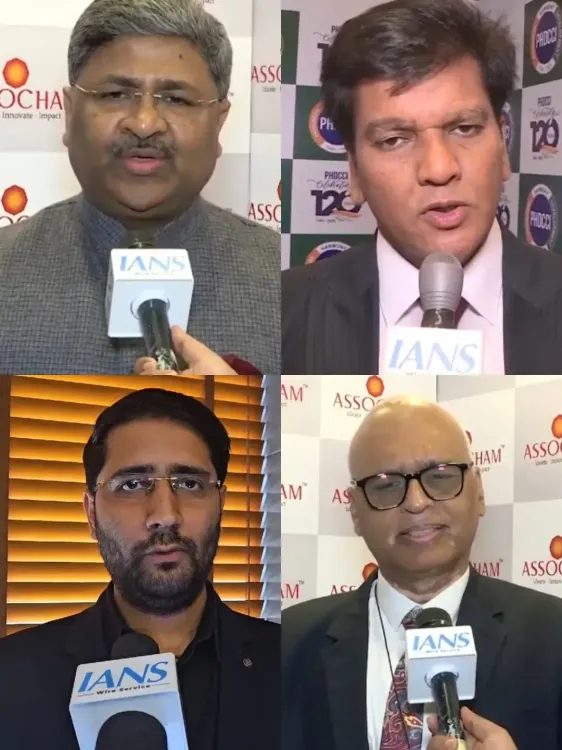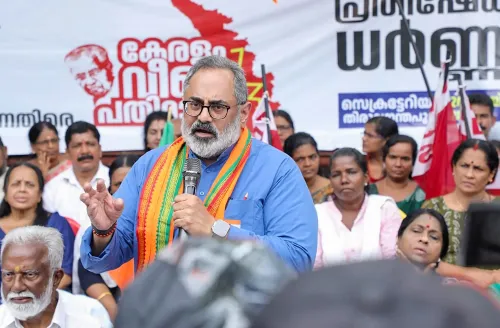Industry Associations Praise Key Features of Union Budget 2025

Synopsis
Key Takeaways
- Economic growth and tax relief are major focuses of the budget.
- Fiscal deficit maintained at 4.4% is viewed positively.
- Middle-class tax exemptions up to Rs 12 lakh are impactful.
- FDI in insurance raised to 100%.
- New tax regime introduced with revised rates.
New Delhi, Feb 1 (NationPress) The Union Budget 2025 has elicited enthusiastic responses from industry leaders, with many applauding its emphasis on economic growth, fiscal responsibility, and tax relief initiatives. Various sectors have shown support for the provisions designed to enhance growth, spur investment, and provide assistance to the middle class.
Sanjay Kumar, Founder & CEO of TTP World, emphasized the budget's dual focus: economic growth and taxation.
"I believe the budget can be categorized into two segments, one concentrating on the nation’s economic development and the other on tax issues. Let’s highlight the economic growth aspect, which encompasses fields like agriculture, promoting investment, MSMEs, and FDI," stated Kumar.
Ajay Singh, CMD of Spice Group and former president of ASSOCHAM, acknowledged several pivotal measures. "It’s commendable that the budget tackled numerous vital concerns, particularly regarding the fiscal deficit. Maintaining the fiscal deficit at 4.4 percent is a significant plus. Raising FDI in insurance to 100 percent is another noteworthy step, as we’ve been advocating for increased Foreign Direct Investment in the nation.
"The tax relief for the middle class, with exemptions up to Rs 12 lakh annually, is arguably the most profound announcement in this budget. We warmly welcome that.
PHDCCI Chair, Mukul Bagla, commented on the advantages of the tax exemptions for middle-class households. "If a household has two taxpayers, and both qualify for the Rs 2 lakh tax exemption, it means the family will have additional funds for their necessities, spending, and consumption. Consequently, whatever they invest in their children, they will have more resources to do so, which will enhance spending. I am confident this will contribute positively to the nation’s growth," Bagla expressed.
Bhupesh Gupta, Co-Chairman of ASSOCHAM, characterized the budget as exceeding expectations. "This is an excellent budget. It surpasses what we anticipated. If we consider the tax brackets and income levels, we expected an increase from Rs 7.5 lakh to Rs 10 lakh," Gupta noted.
Sanjay Bajpai, Co-Chairman of the National Council on Logistics and Warehousing, ASSOCHAM, commended the budget’s emphasis on logistics and shipping.
"The budget encompasses several crucial components. First, as previously mentioned, the economy necessitates a demand boost, and the budget has adeptly addressed this concern. There are numerous new initiatives in the shipping sector, which is an exciting area that will advance the logistics industry. Thus, I firmly believe this is a pro-growth budget," he said.
One of the most significant announcements in the Union Budget 2025 is the tax relief for the middle class. Finance Minister Nirmala Sitharaman declared that there will be no income tax owed for incomes up to Rs 12 lakh annually, and Rs 12.75 lakh for salaried taxpayers, including the standard deduction.
In the new tax framework, the revised tax rate structure is as follows: Rs 0-4 lakh (zero tax), Rs 4-8 lakh (5 percent), Rs 8-12 lakh (10 percent), Rs 12-16 lakh (15 percent), Rs 16-20 lakh (20 percent), Rs 20-24 lakh (25 percent), and above Rs 24 lakh (30 percent).
FM Sitharaman also announced a rationalization of tax deduction at source (TDS) rates and a doubling of the tax deduction limit for senior citizens to Rs 1 lakh. Additionally, the deadline for filing updated returns has been extended from two years to four years.
These significant proposals, alongside a commitment to fiscal discipline, are anticipated to stimulate ongoing economic growth.









